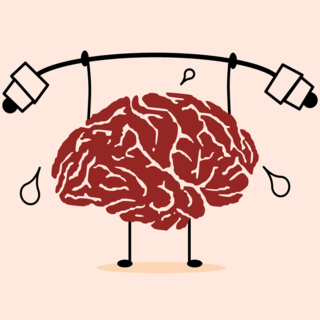Memory
How to Improve Your Memory in Less than 15 Minutes
Exercise before learning improves memory.
Posted September 3, 2018

Can physical exercise improve cognition (e.g., learning and memory)? If so, when should one exercise: Before, during, or after a learning task? According to new research by Haynes and colleagues at the University of Mississippi, a short period of exercise prior to learning improves both short and long-term memory.1
Previous research has shown that physical activity enhances not only health but cognition too. For instance, a 2010 systematic review involving older adults found that 71% of studies examined showed a positive relationship between physical activity and cognition (including lower likelihood of developing dementia).2 And a 2013 review found that cardiovascular exercise was associated with improvements in memory.3
The study
Building on their own previous research on the temporal effects of exercise, Haynes and colleagues attempted to determine when (in relation to the learning task) exercise can best enhance memory.1
The researchers utilized a within-subject counterbalanced design. In this design, participants are exposed to all research conditions; however, the order in which the conditions are experienced is different for different participants. This is done in order to reduce potential bias.
The sample consisted of 24 college students (ages 18-35, average = 21; 67% female; 79% Hispanic white). Potential participants were eliminated if they were smokers, pregnant, had a recent concussion, had been diagnosed with attention deficit disorder or a learning disability, or were taking psychiatric medications; they were also excluded if they had recently exercised, drank coffee, or used marijuana (or other illegal drugs).
The students were asked to complete four one-hour visits to the laboratory. These included a control session in which no physical activity took place; and three sessions of exercise: prior, during, and after memory encoding.
The experimental manipulation consisted of walking on a treadmill for 15 minutes. The participants selected the pace after being told “Please select a pace similar to one you would choose if you were late to class. Thus, it will not be a leisurely walk. Nor will it be a run.’’ Each person walked at the same pace for the whole 15 minutes. The speed chosen, on average, was 3.4 mph.
The control condition did not involve exercise, but a 5-minute rest prior to the completion of the memory task.
In the three exercise conditions, the participants would do the learning task before the treadmill exercise, while on the treadmill, or afterwards. The learning task used was Rey Auditory‐Verbal Learning Test (RAVLT), which is a test of short and long-term memory, consisting of two lists (List A/B) of 15 words that are read (several times) to the participant who then tries to recall as many words as possible.
In all visits, after completing the RAVLT, the students spent 20 minutes watching an episode of The Office (which served as distraction). Subsequently they tried to recall the words from List A of RAVLT.
The results showed that learning improved across trials; this effect was strongest for the condition in which walking on the treadmill occurred before the learning task. This condition was also associated with the best long-term memory performance.
These findings agree with previous research by the same authors (using a different study design), which had shown that moderate and high intensity physical activity prior to (compared with during/after) completing a cognitive task was more beneficial to learning.

Potential takeaways
Next time you need to study for a test, learn new information relevant to your work, or simply memorize the lyrics to a favorite song, first spend 15 minutes doing moderate-intensity physical activity, such as walking your dog or mowing the lawn.
Not only will that be beneficial to your overall health and well-being, it will likely result in enhanced learning and better memory too.
References
1. Haynes IV, J. T., Frith, E., Sng, E., & Loprinzi, P. D. (2018). Experimental effects of acute exercise on episodic memory function: Considerations for the timing of exercise. Psychological Reports. Doi: : 10.1177/0033294118786688
2. Paterson, D. H., & Warburton, D. E. (2010). Physical activity and functional limitations in older adults: A systematic review related to Canada’s physical activity guidelines. International Journal of Behavioral Nutrition and Physical Activity, 7, 38.
3. Roig, M., Nordbrandt, S., Geertsen, S. S., & Nielsen, J. B. (2013). The effects of cardiovascular exercise on human memory: A review with meta-analysis. Neuroscience and Biobehavioral Reviews, 37(8), 1645–1666.


